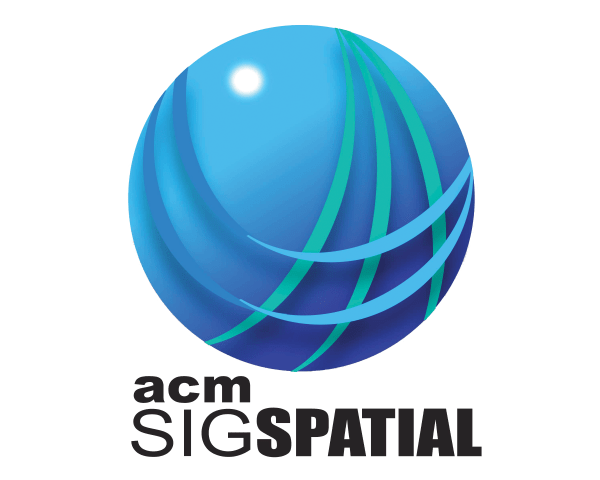CGIS Students Win Prestigious Prizes at 2022 ACM SIGSPATIAL Conference
At the 2022 ACM SIGSPATIAL conference, CGIS graduate students took home second and third prize in the 11th SIGSPATIAL Cup (also known as the GISCUP), an annual competition which encourages innovation in GIS-focused algorithms. A one-person team of CGIS Ph.D. student Xin Xu won second place, while another team consisting of CGIS Ph.D. students Weiye Chen, Zhihao Wang, and Zhili Li (all members of Dr. Yiqun Xie’s group), won third place.
“This is a great achievement. ACM SIGSPATIAL is the most prestigious conference and publication venue in spatial data processing and analysis,” said Leila De Floriani, professor of geographical sciences and graduate program director.
The competition, which launched earlier this summer, asked participants to use geospatial or machine learning-based methods to detect building footprints from airborne laser scanning (ALS) point cloud data (data collected from lasers mounted on aircrafts). Teams were given approximately one month to develop solutions that produced building outlines matching the real boundaries of buildings as accurately as possible.
Xu, drawing on his experience with tree extraction from forest point clouds and powerful topology-based analysis tools, built a simple, practical, and effective solution. “I designed an unsupervised delineation approach based on detecting building bottoms on the ground by computing alpha shapes and on computing surface planarity to outline flat surface areas,” explained Xu. “This resulted in a very efficient solution that does not require a training process.”
The third-place team, which joined the competition at the last minute, took a different approach to the problem. “We used an AI solution that is quick to implement, flexible, and easy to adopt,” said Chen, who represented his team at the conference. “The deep learning component, a U-Net, was quickly built and only took half an hour to train.” Working with a limited dataset of just 19 images—a challenge for training deep neural networks—the model performed competitively, thanks to the help of knowledge-informed features from remote sensing, said Chen.
Li added that generally, this type of “data-driven” model’s performance will continue to improve as more annotated labels are included. “In practice, the model will also largely benefit from transfer learning. But since this is a competition, we decided to only use the provided dataset,” he said. Wang also pointed out the flexibility of the model, which “can be quickly applied to general object mapping problems with either LiDAR or optical data.”
All participating students agreed that the competition provided a refreshing change of pace from typical graduate school research. “It is challenging to solve a real and specific question by providing an executable program in a limited amount of time,” said Xu. He owed his success to the education and training he received from his advisors, Leila De Floriani and Federico Iuricich, of Clemson University, as well as the skills he gained as a GEOG student.
Chen, Wang and Li appreciated the opportunity to work with LiDAR data, which was new for all of them. They added that it was a rewarding experience to collaborate with one another, noting that “teamwork isn’t always as simple as 1+1+1=3.”
"Our teams' winning solutions demonstrate the potential of applying both topology-based geospatial methods and GeoAI methods to common tasks in Earth observation,” said Chen. “This achievement reflects the strength and diversity of research activities in GEOG and CGIS," concluded Xu.
Congratulations to Xu, Chen, Wang, and Li!
Published on Mon, 11/21/2022 - 12:31


